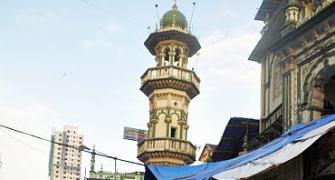The militants strike in Gawadar, Balochistan, Peshawar, Hangu and Upper Dir districts of Khyber Pakhtunkhwa, thus marked the first day of the holy month with bombing and killing.
On the occasion of Ramzan a hitherto unknown organisation with the name of 'The Base of Jihad', while claiming responsibility for the terrorist attack against Israeli tourists in Burgas, said: 'The month of Ramzan is a month of holy war and death for Allah; it is a month for fighting the enemies of Allah'. Pakistani militants, following the same ideology, intensified their attacks during Ramzan.
The first attack of the holy month was reported in Gawadar coastal area of Balochistan when six security personnel were killed and four others injured as militants fired rockets at a security checkpost. The unidentified militants attacked the checkpost located in Pishukan area of Gawadar with rockets and heavy artillery fire. The attackers fled the scene and no arrest was made.
In the second incident at least three people were killed and seven others injured in a powerful remote-controlled blast in Daug Darra in Upper Dir. According to local police, the remote-controlled explosion targeted a vehicle that was en route from Shotkas to Sringal while carrying some members of pro-government Qaumi Lashkar (private armed forces against Taliban).
Daug Darra is considered to be a stronghold of an anti-Taliban militia set up by local people in Upper Dir district. The district lies close to eastern Afghanistan's troubled provinces of Kunar and Nuristan. Although the attack was not claimed by anyone, some intelligence officials in Upper Dir said the attackers were followers of Maulana Fazlullah, militant leader at Swat valley who is currently hiding in Afghanistan.
In 2009, the Pakistan army launched a military operation against Taliban fighters led by Fazlullah, who had a strong influence over Swat valley but he was defeated. Some of his men were killed and the remaining fled to Afghanistan; now Maulana Fazlullah has reunited his men in Kunar and Nuristan provinces of Afghanistan who are involved in cross-border attacks. The Upper Dir attack was the first attack of Ramzan from Maulana Fazlullah-led militants.
On the first day of Ramzan, another bomb also ripped through Pishtakhara area of Peshawar, which fortunately did not cause any casualty. The bomb went off in an open field.
The largest attack of the days took place when a member of Tehrik e Taliban Pakistan detonated his explosive-laden vehicle in the compound of another pro-government militant group in the bordering area of Kurram and Hangu. The attack resulted in the killing of 10 people while another 20 people sustained injuries. TTP spokesperson Ihsanullah Ihsan, while taking responsibility, called it a 'successful attack'.






